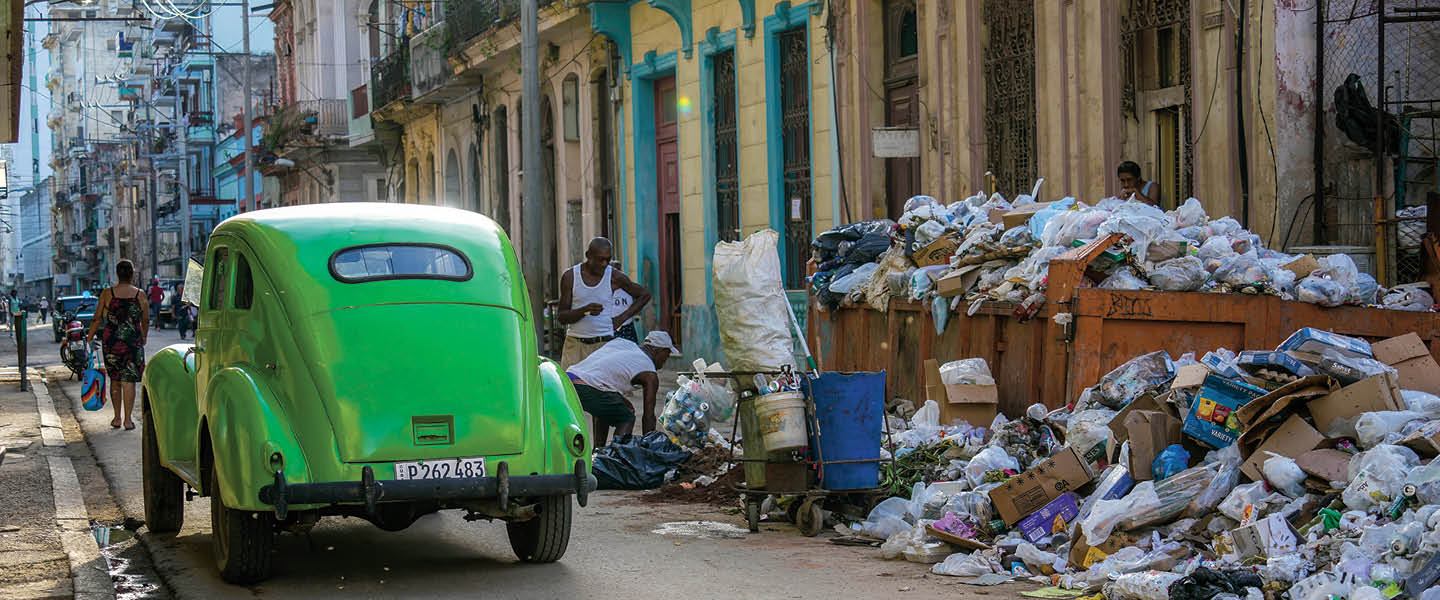Not long ago, the Plaza of the Revolution in Havana, Cuba, was packed with American tourists knocking into each other with selfie sticks while taking photos of the iconic image of the revolutionary Che Guevara and trying to catch a ride in a candy-apple red 1952 Chevrolet Bel-Air.
Today those polished 1950s-era American convertibles that have come to symbolize Cuba sit empty. The tourists they once carried are largely gone.
Lately, the drivers spend their lives like most Cubans do: coping with prolonged power outages, standing in line at poorly stocked supermarkets, and watching many of their friends, relatives, and neighbors—sick of all the hardships—pack up and leave the country.
Ten years ago, President Barack Obama stunned the world by restoring diplomatic relations with Cuba, ending more than 50 years of Cold War estrangement between the United States and a nation with which it had once been on the brink of nuclear war (see timeline slideshow, below). For two-plus years, Cuba brimmed with enthusiasm as waves of tourists and investment flowed in, fueled by deals signed by major American companies such as AT&T, Google, and Major League Baseball.
Not long ago, the Plaza of the Revolution in Havana, Cuba, was packed with American tourists. They’d knock into each other with selfie sticks while taking photos of the iconic image of the revolutionary Che Guevara. Then they’d try to catch a ride in a candy-apple red 1952 Chevrolet Bel-Air.
Today those polished 1950s-era American convertibles sit empty. The tourists they once carried are largely gone.
Lately, the drivers spend their lives like most Cubans: They deal with prolonged power outages, standing in line at poorly stocked supermarkets, and watching many of their friends, relatives, and neighbors leave the country.
Ten years ago, President Barack Obama stunned the world by restoring diplomatic relations with Cuba. It put an end to more than 50 years of Cold War estrangement between the United States and Cuba, nations that once had been on the brink of nuclear war (see timeline slideshow, below). For two-plus years, Cuba was full of excitement. Waves of tourists and investment flowed into the country. Major American companies such as AT&T, Google, and Major League Baseball signed deals to do business there.

